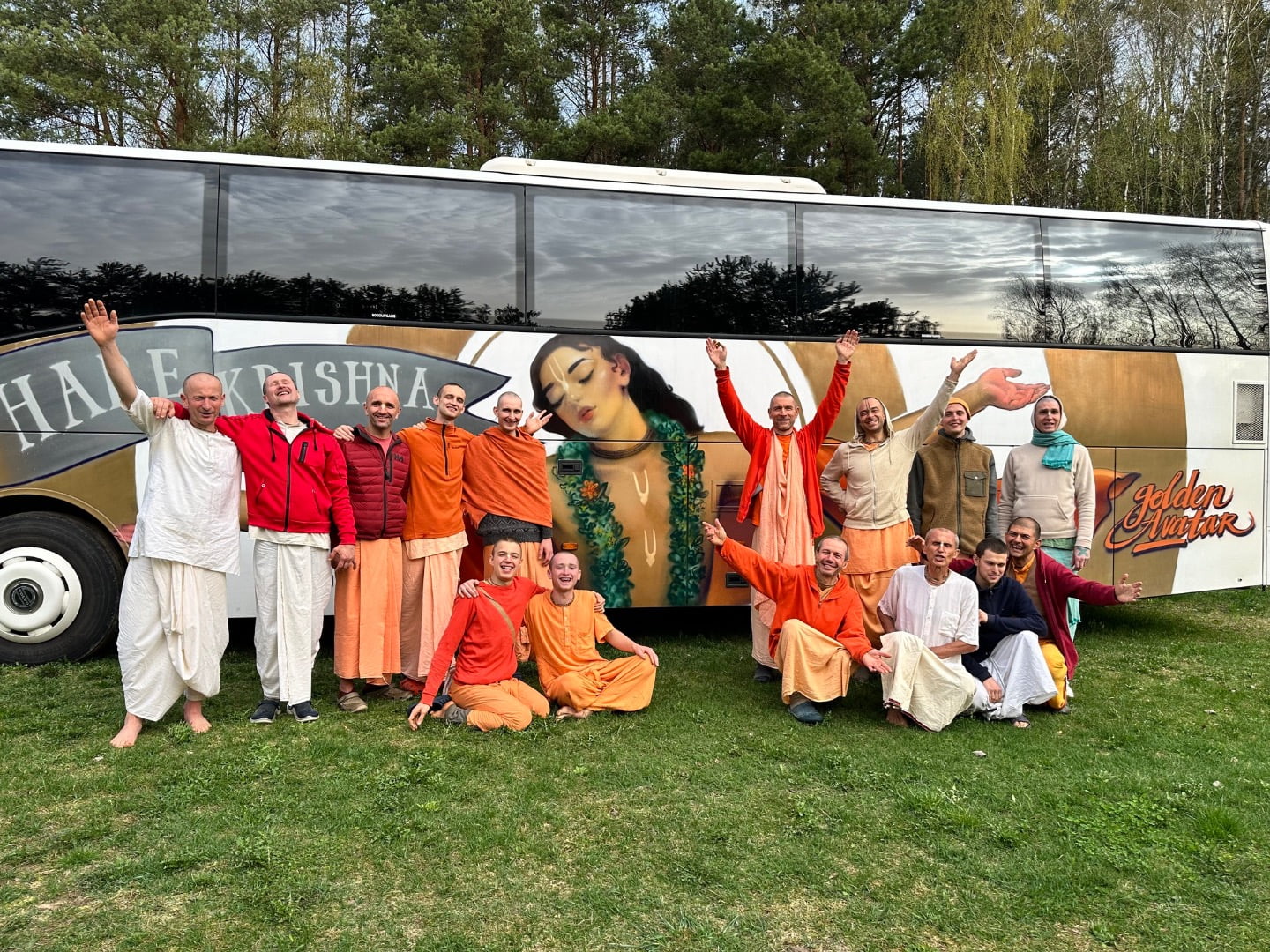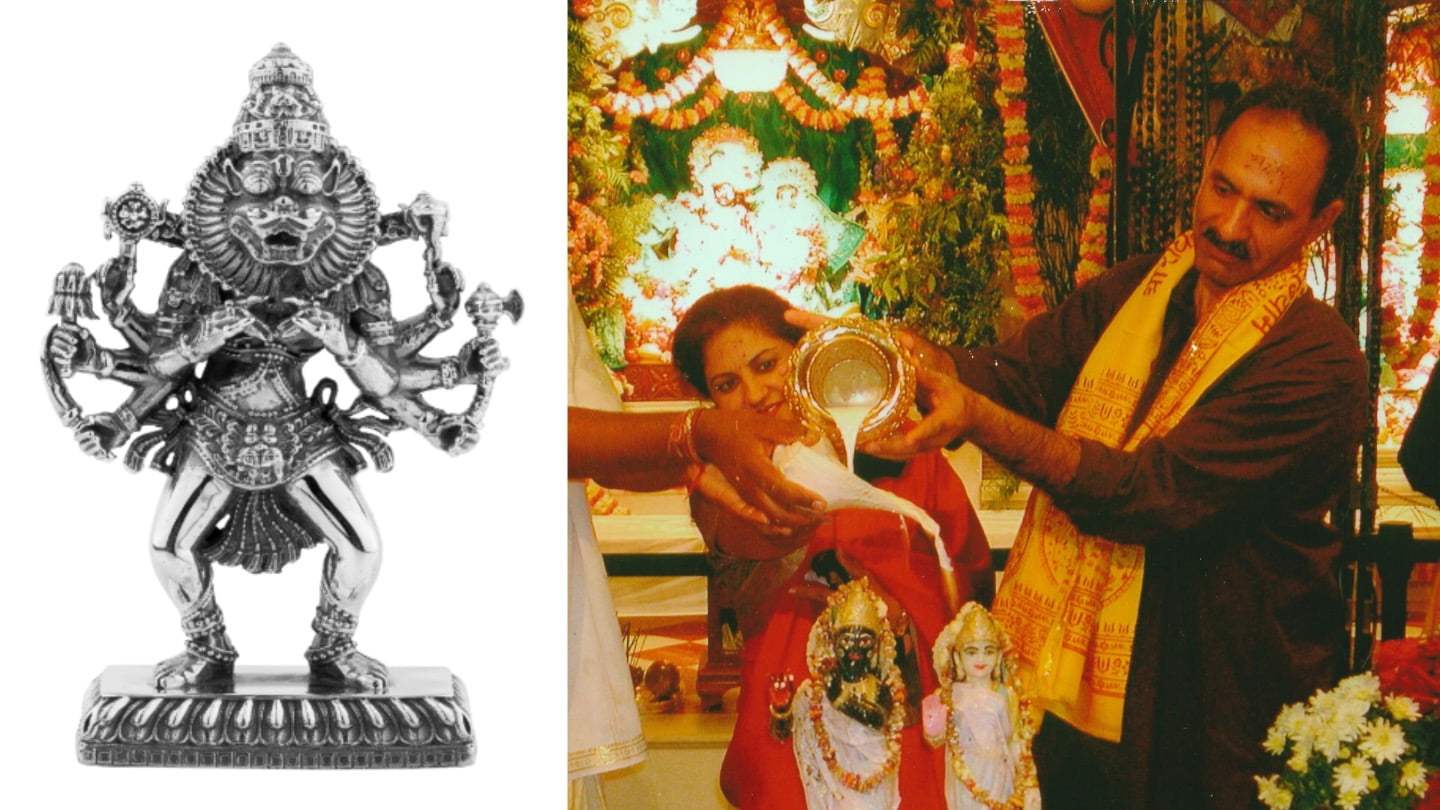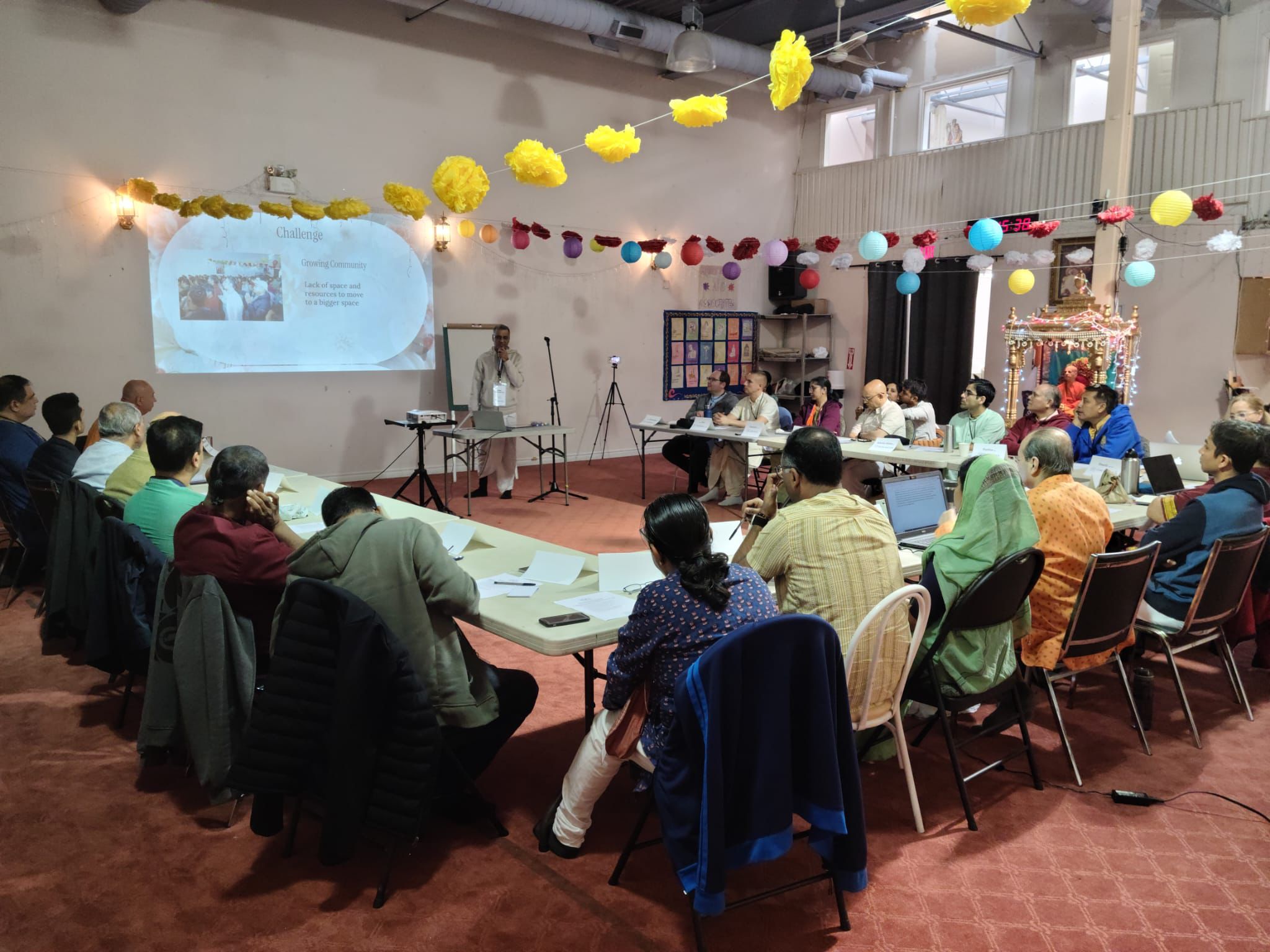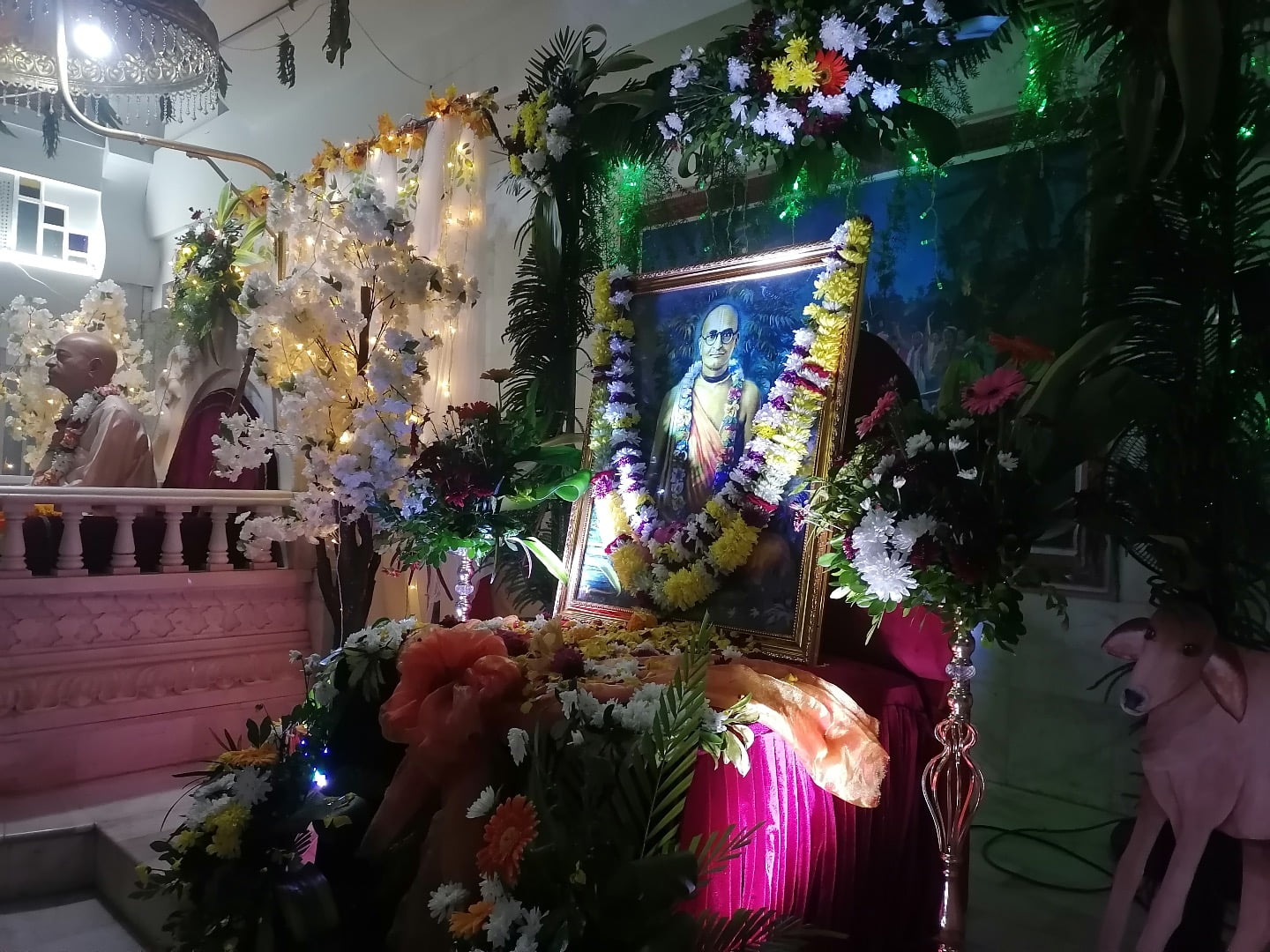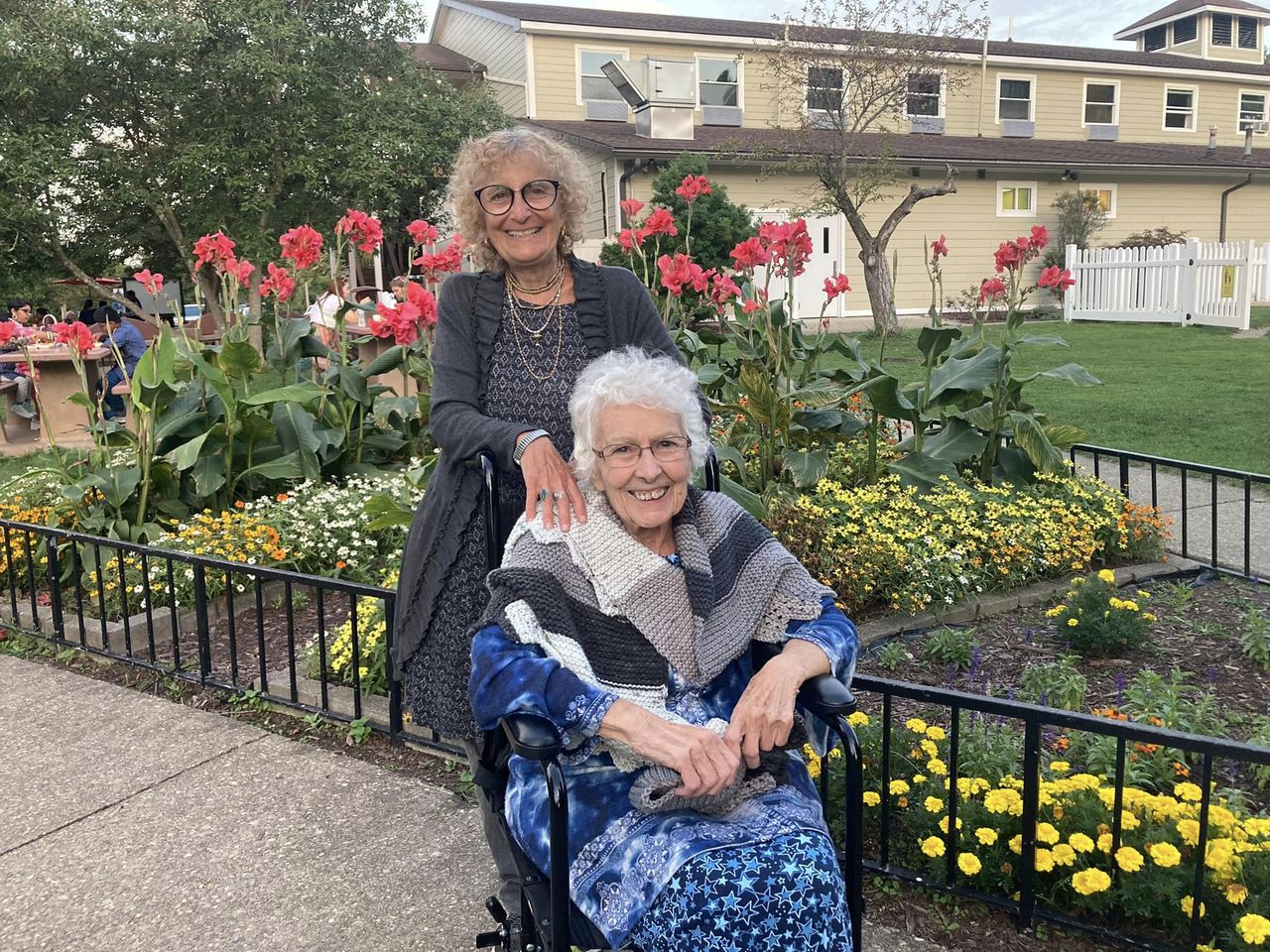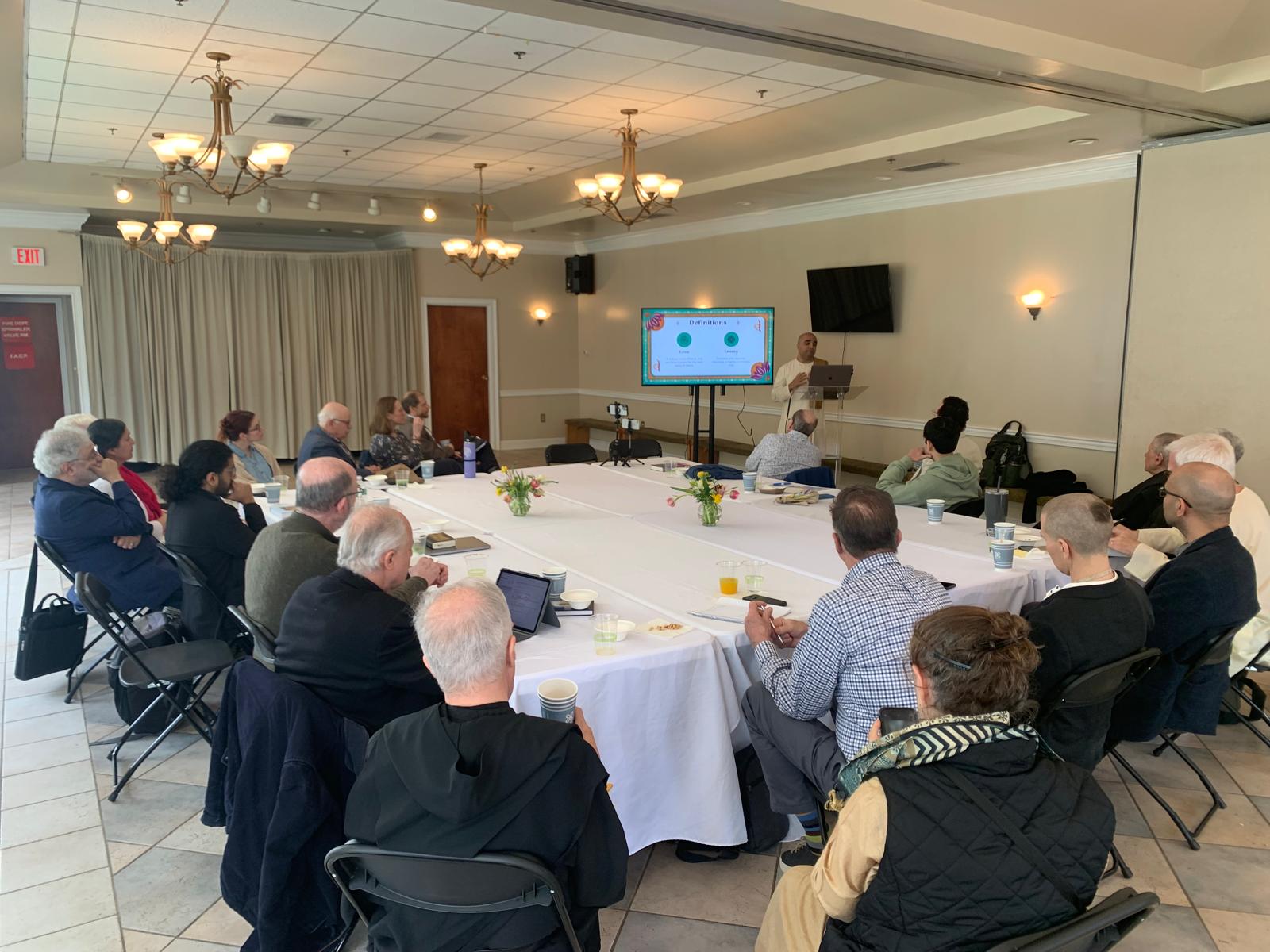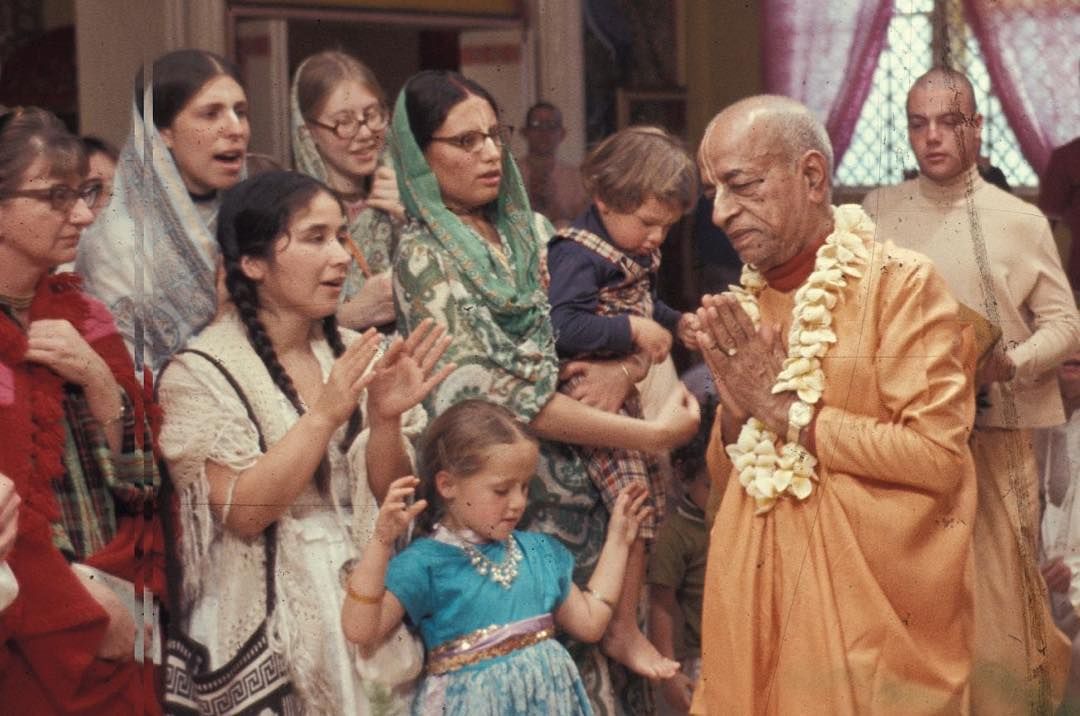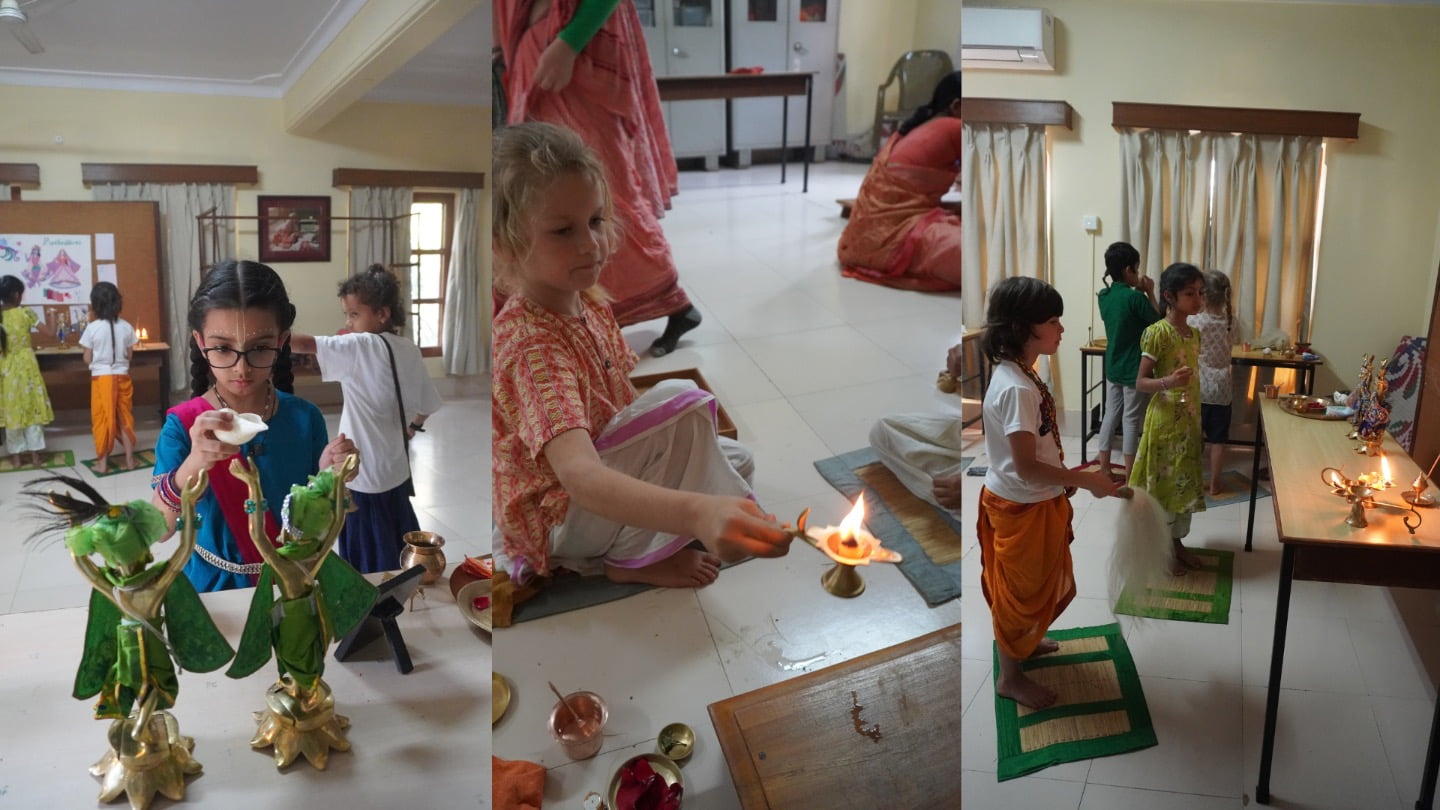Vaishnavas and Muslims Find Common Ground in D.C. Dialogue
By Madhava Smullen | Июн 26, 2010

Sixteen men and women from the Muslim and Vaishnava faiths, some laypersons and some Imams and priests, met at Rockwood Manor retreat center in Washtington D.C. for the state’s first Vaishnava-Muslim interfaith dialogue back on March 6th.
The one-day event was organized by Anuttama Dasa, ISKCON Minister of Communications and chairman of the ISKCON Interfaith Commission, and Dr. Kirmani, a Muslim professor and board member of the Interfaith Conference of Metropolitan Washington D.C.
While growing up in India, Dr. Kirmani’s father had hired both a Brahman to teach him the Upanishads and an Imam to teach him the Koran. Later, he saw Srila Prabhupada speak at Harvard University while a student there in 1969 and was so impressed that he became convinced that all the world’s great religions had important knowledge about God.
This inspired him to discuss the idea of a Vaishnava-Muslim dialogue with his friend Anuttama Dasa, whom he had met during one of several visits to the ISKCON Center in Washington D.C.
The topic chosen for the dialogue, which ran from 10:00am until 4:00pm, was “The Name of God.” “Reverence for God’s name is an important aspect of both traditions, and we thought it was something around which we could share commonalities, understand differences, and learn from each other,” Anuttama says.
The meeting began with brief introductions from the Muslim participants, including Princeton University’s Coordinator for Muslim Student Life Sohaib Sultan, Imam Naqvi of the Jaferia Islamic Center in suburban Washington D.C., and his wife Ansom.
The Vaishnava participants then introduced themselves, including Anuttama and his wife Rukmini, Princeton Coordinator for Hindu Life Vineet Chander (Venkata Bhatta Dasa), and ISKCON scholar Ravindra Svarupa Dasa.
Sohaib Sultan, also an Imam, opened proceedings by presenting his paper on The Name of God: A Muslim Perspective.
He first explained that the word Muslim, in Arabic, means one who surrenders and lets go of his ego.
He noted that interestingly, the word “Allah” means “God” in Arabic, making it a non-sectarian word—in the Middle East, even Christians call God Allah.
Sohaib also spoke about how Muslims emphasize remembrance of God, and chant what they call the 99 Beautiful Names of God. These are divided into two broad categories: one comprises God’s majestic aspects and includes names meaning The Creator, The Provider, The Source of All, and The King. The other addresses God’s beauty, and includes names meaning The Generous One, The Loving One, and The Patient One.
Sohaib’s presentation was followed by a brief question and answer period. Some of the Vaishnavas in the group commented on how the two categories of God’s names in the Islamic tradition corresponded to their tradition’s glorification of both God’s Aishvarya nature, or opulence, and his Madhurya nature, or beauty and sweetness.
Sohaib’s colleague at Princeton, Vineet Chander, then presented his paper on the The Name of God from the Vaishnava perspective.
Like Sohaib, he began by explaining the meaning of an adherent of his tradition. A Vaishnava, he said, is one who always chants the name of God, and whose very presence inspires others to serve God.
He then discussed the chanting of God’s name as a prayer for salvation, as meditative remembrance of God, and as communion with God, mentioning that a Vaishnava is encouraged to call God’s names just as a child cries for its mother.
He related that while Vaishnavas have many different names for God—the Bhagavad-gita contains more than forty, and the Vishnu Sahashranama lists no less than one thousand—they hold the name “Krishna” especially dear. Still, they have great respect for all names of God, as Vineet illustrated with a story of the contemporary Vaishnava teacher A.C. Bhaktivedanta Swami Prabhupada.
In the late 1970s while visiting Tehran, Iran, Srila Prabhupada was seated with his disciples in his guest room when suddenly, from the minarets outside, came the booming call to prayer. Prabhupada closed his eyes, listened deeply, and then expressed his appreciation for this system of calling God’s name.
“But Prabhupada,” asked one of the young students, “wouldn’t it be better if they were chanting Hare Krishna over the loudspeakers?”
The elderly Vaishnava teacher sat in silence for a few moments and then turned to his novice disciple with pained expression. His voice as grave as it was compassionate, he replied with a question of his own “Why are you trying to make me sectarian?”
Vineet’s presentation was followed by a vegetarian lunch, with both Muslim and Vaishnava participants saying prayers before eating together.
A three-hour roundtable discussion came next, yielding many interesting points.
One participant asked, “Is chanting God’s names enough?” Ravindra Svarupa Dasa, who holds a Ph.D in religious studies from the University of Pennsylvania, fielded the question, explaining that according to Vaishnava theology, there are three levels of chanting: offensive, clearing, and pure.
Likening them to the rising sun, he said that in the offensive stage, or darkness, we still desire material pleasure and don’t feel the effects of the Holy Name so strongly. If we keep chanting, however, we come to the clearing stage, or dawn, in which we clear all material contamination and begin to taste the sweetness of God’s name. Finally in the pure stage, which is just like the fully-risen sun, we attain the most coveted goal of love of God.
Muslim participants, meanwhile, quoted beautiful prayers in the Q’aran which say that all beings know how to worship the Lord, just as the birds worship Him by spreading their wings.
They shared that while Allah is the main name of God, Arahman—meaning the infinitely good and compassionate one—is another important name often used in the Koran.
Although God transcends masculine and feminine, they said, “mother” is often used in the Muslim tradition to describe God’s love.
One of the Muslim ladies mentioned that they believe that chanting God’s names keeps “the monkey mind” quiet.
Some participants following Sufism, a part of Islam, explained that according to their tradition, as one draws closer to God, one gains His qualities.
“It was a great experience,” says Anuttama Dasa. “Generally we hear how the Muslim and Hindu communities have some tension between them. But when we sat down as people of faith, trying to understand each other and trying to learn from each other about God, I think everybody there was truly impressed at how much we had in common.”
Anuttama feels that it’s important for all ISKCON devotees to experience this interfaith perspective and to understand that we live in a diverse religious environment. “We have neighbours that are Christians, Jews, Muslims and so many other traditions,” he says. “And as broad-minded God conscious people, we should develop friendships and relationships with fellow believers. That’s just our basic civic duty as part of the 21st century.”
Even more importantly, however, the Vaishnava tradition firmly establishes that every living being is the servant of God. “We don’t differentiate between people in the ultimate sense,” Anuttama says. “We believe that everyone’s connected to Krishna—and we have affection for everyone on that basis.”
He adds that in the modern age there’s a tremendous amount of conflict between religious communities, and that we should try to diminish this by being proactive in increasing genuine dialogue between sincere people of faith.
“And lastly, God is unlimited,” he says. “And if we genuinely love God, we want to learn and hear as much about Him from as many places as we possibly can.”
A second Vaishnava-Muslim dialogue will be held in Washington D.C. in March 2011, while the fifteenth annual Vaishnava-Christian dialogue will be held in April 2011.
The ISKCON Communications Office strongly encourages devotees to familiarize themselves with the ISKCON statement on interfaith, available online at http://content.iskcon.com/icj/7_1/71srd.html. Devotees interested in developing interfaith dialogues in their own areas are encouraged to contact the ISKCON Communications office at IC@pamho.net.





